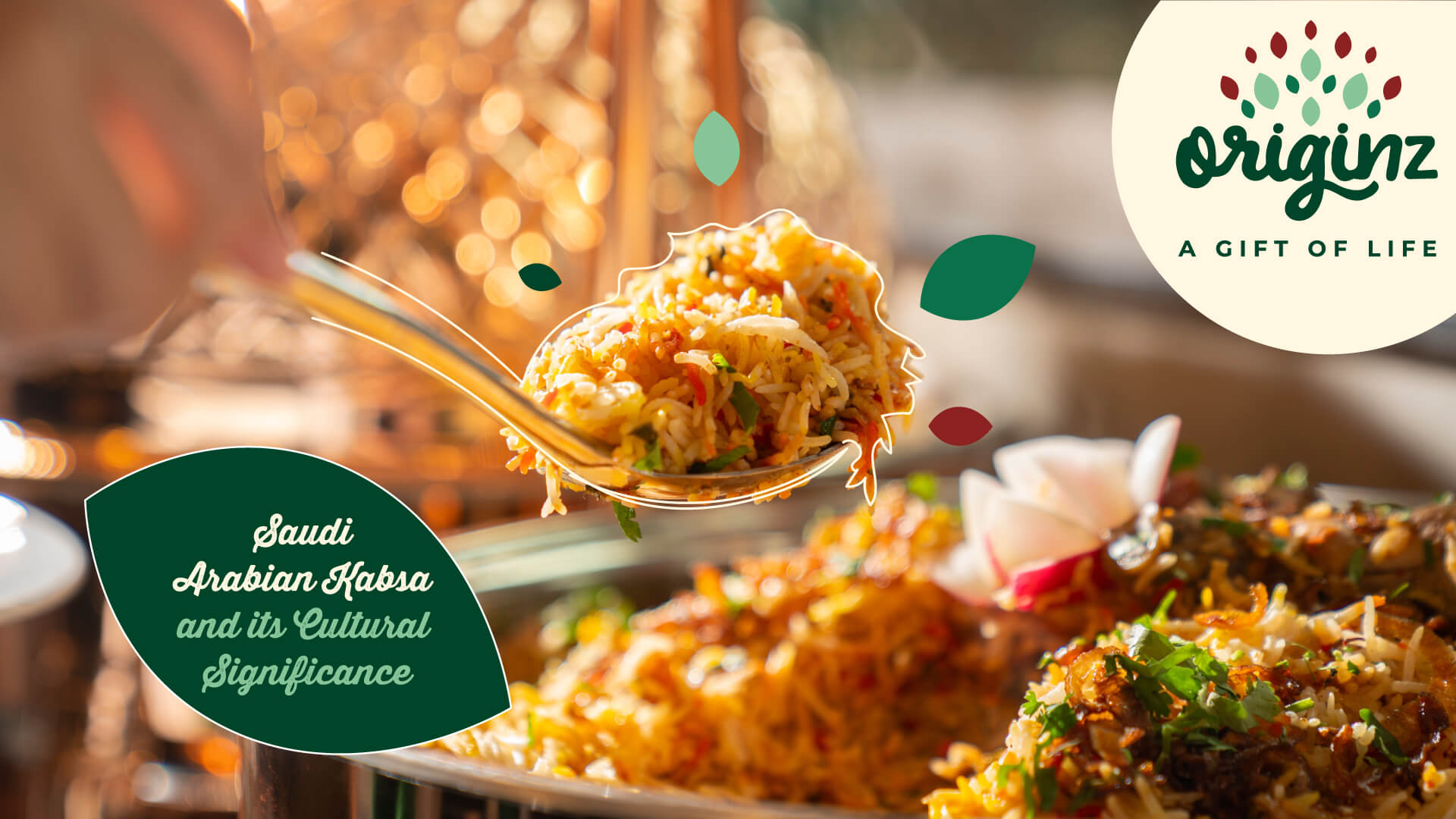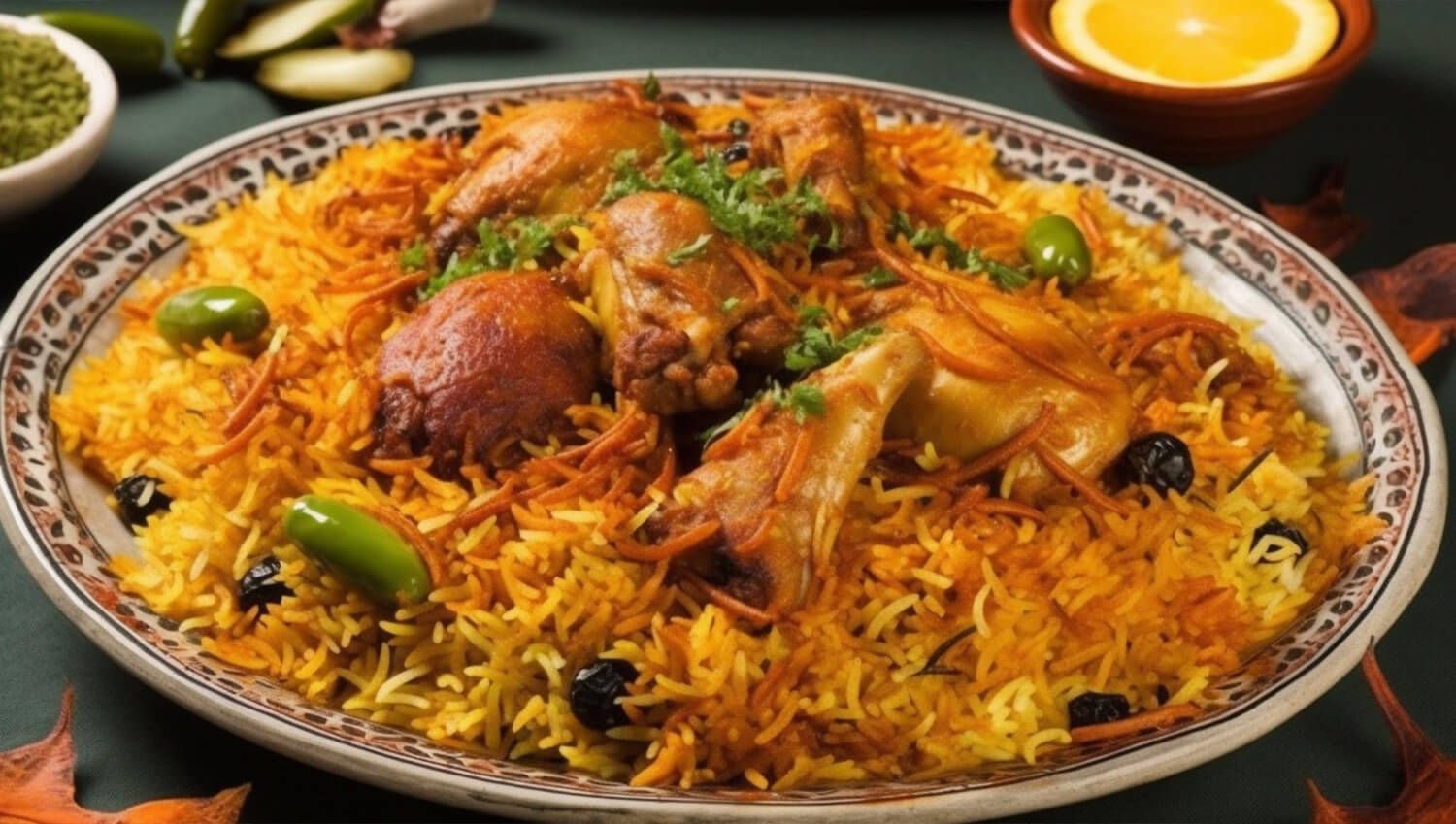
Saudi Arabian Kabsa and its Cultural Significance
In the heart of Saudi Arabian cuisine lies the kabsa dish, a quintessential meal that binds flavour with culture. This aromatic and savoury meal is more than just food; it's a celebration of heritage and culinary tradition. In this exploration of kabsa and its cultural significance, we delve deep into the roots and reasons that make this Arabic dish kabsa a staple at many Saudi tables.
The Essence of Kabsa
Kabsa is not just a single dish but a variety of them, each with unique twists and flavours depending on regional and familial traditions. Central to the preparation of any kabsa dish recipe are the kabsa ingredients, which are typically a blend of rice, meats (such as chicken, lamb, or seafood), and a rich tapestry of spices for kabsa. These often include cardamom, saffron, cinnamon, black lime, bay leaves, and nutmeg, which offer a distinctive taste and aroma recognised instantly across the Arabian Peninsula.
The spices for kabsa are not just chosen for their flavour but for their health benefits as well, aligning with the growing global preference for organic and health-focused culinary choices. Organic spices tend to have higher potency and richer flavours, which makes them ideal for a kabsa, a Saudi food where taste and tradition go hand in hand.

Cultural Significance of Kabsa
Kabsa's significance extends beyond its components; it is deeply woven into the fabric of Saudi life. Historically, this Arabic dish kabsa was served during significant events and gatherings, symbolising unity and communal sharing. Today, preparing and consuming kabsa is still seen as a gesture of hospitality and generosity. It's common for families to gather around a large platter of kabsa, sharing the meal from the same dish, which strengthens bonds and fosters a sense of belonging and peace.
The kabsa dish recipe varies from one region to another, encapsulating the diversity of the Saudi cultural landscape. Whether it's the choice of meat or the blend of spices for kabsa, each variation tells a story of migratory influences, trade relationships, and ecological adaptations that have shaped Saudi culture over centuries.
Kabsa and Health
In contemporary times, there has been a surge in the demand for organic ingredients, driven by an increased awareness of health and wellbeing. Organic farming practices ensure that the kabsa ingredients are devoid of harmful pesticides and chemicals, enhancing the nutritional value of the kabsa. For those looking to embrace this wholesome approach in their kitchens, an organic grocery store like Originz offers a range of products that are perfect for creating a delicious and healthful kabsa dish.
Using organic components in a kabsa dish recipe not only elevates the taste but also aligns with ethical and environmental standards. This shift towards organic produce supports sustainable agriculture and promotes a healthier lifestyle, making the kabsa dish an excellent choice for the health-conscious.
Kabsa in the Global Kitchen
As globalisation shrinks the world, many dishes are finding a new audience, including kabsa. Saudi food enthusiasts, and international foodies eager to explore Saudi cuisine, can start with kabsa by following a simple kabsa dish recipe. These delicious recipes provide step-by-step guidance to recreate authentic Saudi flavours in any kitchen around the world.
Moreover, the internet has made it easier for cultural dishes to gain international fame. With a click, one can order organic ingredients from an organic grocery store, or a brand like Originz, ensuring that even the most exotic recipes can be authentically replicated at home.
FAQs
What are the key spices for kabsa?
The key spices for kabsa typically include saffron, cardamom, cinnamon, black lime, and bay leaves, all of which are crucial for achieving the authentic flavour of the dish.
Can I make a vegetarian kabsa dish?
Yes, a vegetarian kabsa dish recipe can be just as delicious, substituting meat with a rich variety of vegetables and sometimes adding nuts and raisins for extra texture and flavour.
Where can I find organic ingredients for kabsa?
You can purchase high-quality organic ingredients for your kabsa dish at an organic grocery store like Originz, ensuring both flavour and nutritional value.
In conclusion, the kabsa dish is not merely a meal but a profound expression of cultural identity and heritage in Saudi Arabia. Through its rich flavours and communal serving, kabsa embodies the spirit of Saudi hospitality and the evolving nature of its culinary traditions.
Further Read,
· Best
Burger Places in Saudi Arabia
· Benefits
of Green Beans for Weight Loss
Latest Blogs

Maintaining Healthy Habits After Ramadan
Have Ramadan healthy meals after Ramadan and maintain healthy food habits and implement them in your daily lives. Read more about healthy food habits.

Authentic Middle Eastern Iftar Meals to Prepare This Ramadan
Prepare some authentic middle eastern iftar meals this Ramadan. Look for fresh Ramadan food ideas and make your day memorable with these dishes. Check them out.

Ramadan Dishes to Cure Fasting Fatigue
Don’t worry about fasting fatigue anymore as we have listed some best Ramadan dishes and easy iftar meals to support your fasting journey. Check them out.

Eid-al-Fitr Feast: Delicious Recipes to Celebrate the End of Ramadan
Celebrate the end of Ramadan with delicious recipes on the eve of Eid ul Fitr. Read more about the traditional Ramadan recipes and make them easily.